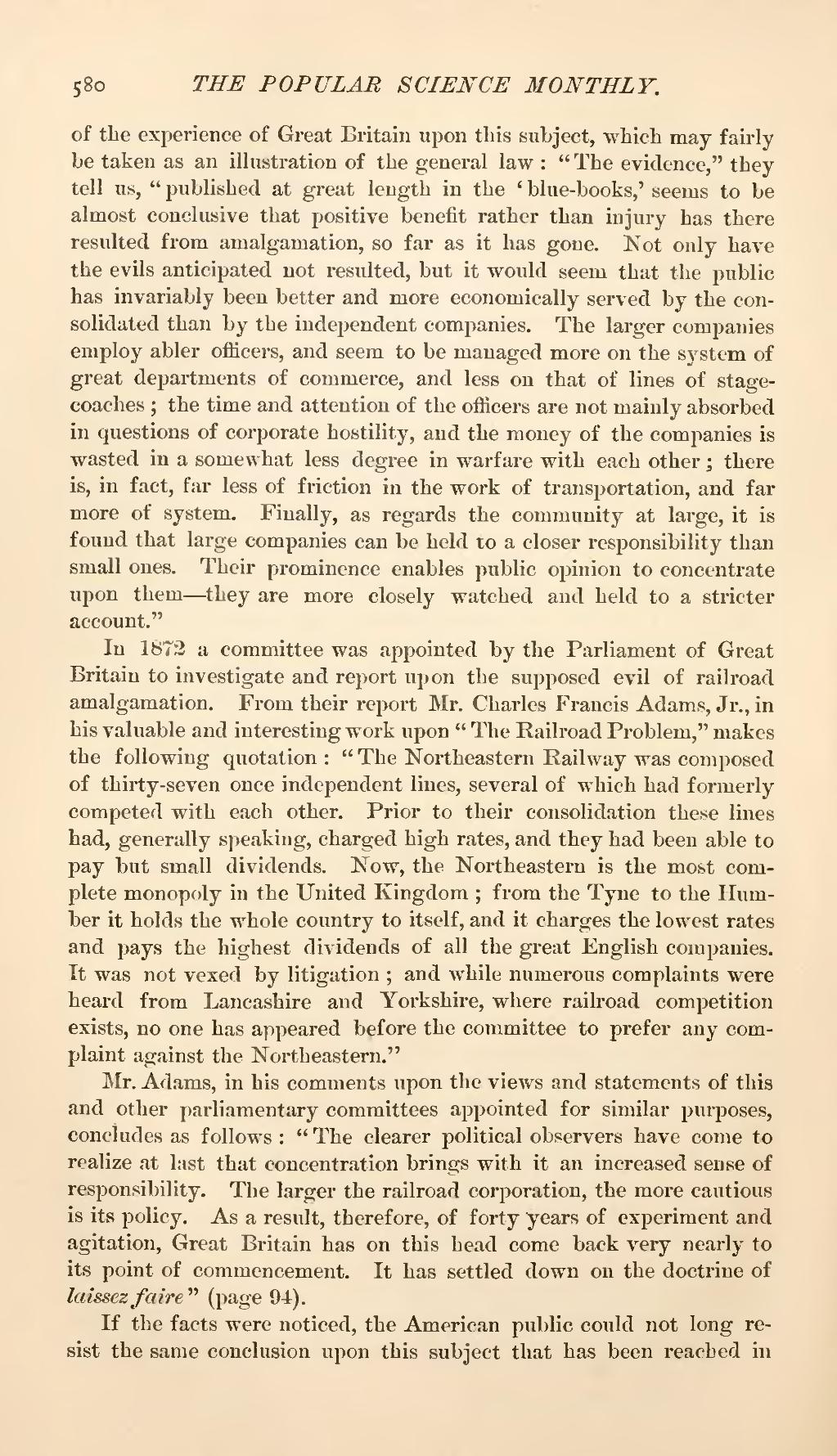of the experience of Great Britain upon this subject, which may fairly be taken as an illustration of the general law: "The evidence," they tell us, "published at great length in the 'blue-books,' seems to be almost conclusive that positive benefit rather than injury has there resulted from amalgamation, so far as it has gone. Not only have the evils anticipated not resulted, but it would seem that the public has invariably been better and more economically served by the consolidated than by the independent companies. The larger companies employ abler officers, and seem to be managed more on the system of great departments of commerce, and less on that of lines of stagecoaches; the time and attention of the officers are not mainly absorbed in questions of corporate hostility, and the money of the companies is wasted in a somewhat less degree in warfare with each other; there is, in fact, far less of friction in the work of transportation, and far more of system. Finally, as regards the community at large, it is found that large companies can be held to a closer responsibility than small ones. Their prominence enables public opinion to concentrate upon them—they are more closely watched and held to a stricter account."
In 1872 a committee was appointed by the Parliament of Great Britain to investigate and report upon the supposed evil of railroad amalgamation. From their report Mr. Charles Francis Adams, Jr., in his valuable and interesting work upon "The Railroad Problem," makes the following quotation: "The Northeastern Railway was composed of thirty-seven once independent lines, several of which had formerly competed with each other. Prior to their consolidation these lines had, generally speaking, charged high rates, and they had been able to pay but small dividends. Now, the Northeastern is the most complete monopoly in the United Kingdom; from the Tyne to the Humber it holds the whole country to itself, and it charges the lowest rates and pays the highest dividends of all the great English companies. It was not vexed by litigation; and while numerous complaints were heard from Lancashire and Yorkshire, where railroad competition exists, no one has appeared before the committee to prefer any complaint against the Northeastern."
Mr. Adams, in his comments upon the views and statements of this and other parliamentary committees appointed for similar purposes, concludes as follows: "The clearer political observers have come to realize at last that concentration brings with it an increased sense of responsibility. The larger the railroad corporation, the more cautious is its policy. As a result, therefore, of forty years of experiment and agitation, Great Britain has on this head come back very nearly to its point of commencement. It has settled down on the doctrine of laissez faire" (page 94).
If the facts were noticed, the American public could not long resist the same conclusion upon this subject that has been reached in

